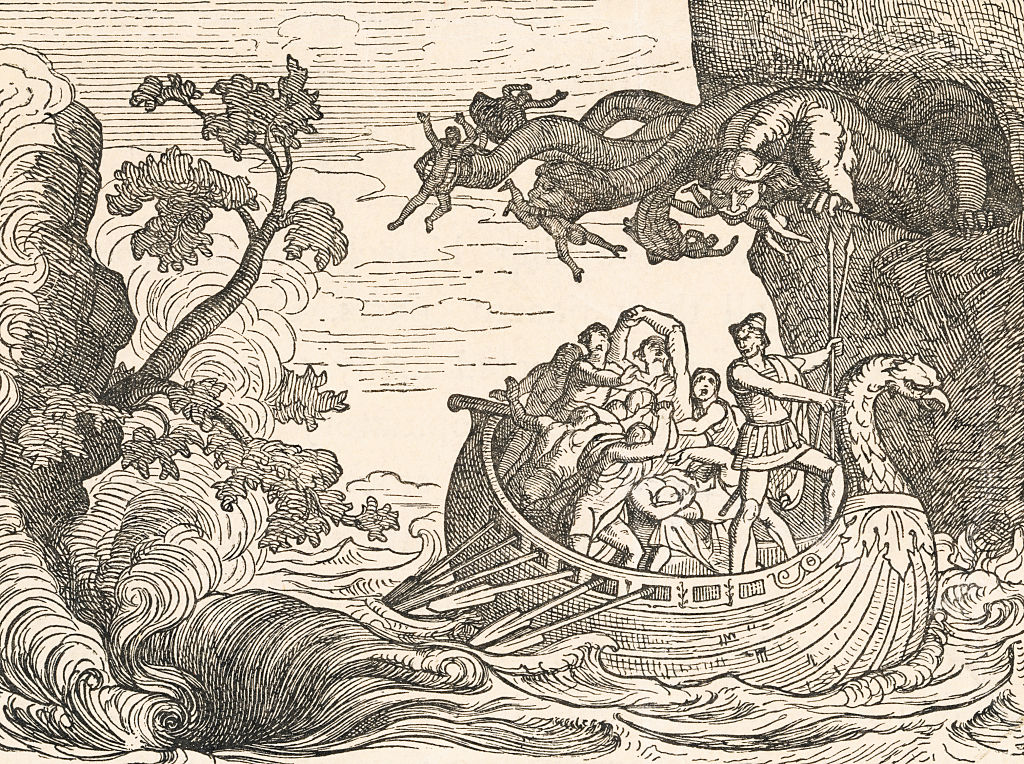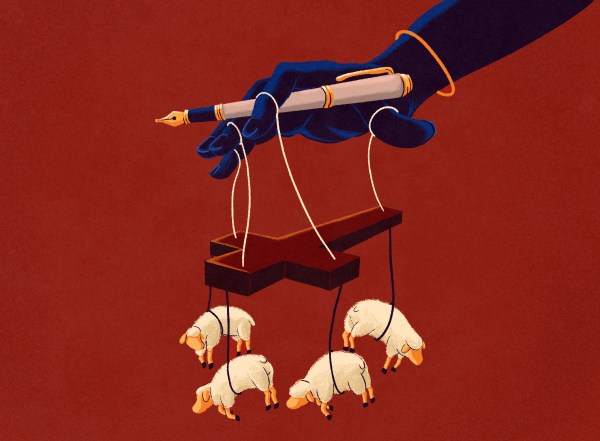In one of Aesop’s fables, a deer fleeing hunters takes refuge in a cave, only to fall prey to a lion into whose den he had stumbled. The moral: Sometimes safety is an illusion hiding greater dangers.
Let me offer an updated version: The deer flees to the cave knowing the lion was there, hoping to hire the lion to take out the hunter. The lion takes payment, roars at the hunter, and eats the deer. Who got the better deal?
The deer is conservative Christians fleeing the hunters of the progressive left. The danger is real, and it is rational to flee and look for safety. But in their panic, some stumbled into the cave with the MAGA movement—or knowingly sought it out. As they did in 2016, so again in 2024 evangelicals sought safety in Donald Trump’s Republican Party.
The deer had a terrible decision to make—but, with hindsight, it’s clear that the lion is not only as dangerous as the hunter, but perhaps even more so because the hunter never tried to hide who he was. The lion matched malice with deception.
So much of our political stance comes from our perception of relative threat. Each tribe is defined mostly by what it thinks is more dangerous. Tell me what you fear most and I’ll tell you what party you belong to.
Many Christians fear the hunter (the left) more than the lion (the MAGA movement). Faced with the reality of right-wing extremism and even political violence, they reflexively cite left-wing extremism, illiberalism, and violence. But citing left-wing extremism as a response to its right-wing counterpart is to argue either that left-wing extremism justifies right-wing extremism, or that left-wing extremism is a bigger or more urgent problem.
The first argument is so obviously wrong that even my kids grasp that “two wrongs don’t make a right.”
As for the second argument, I think it’s wrong, but even if it weren’t—even if left-wing extremism were a bigger problem—right-wing extremism would still be real, still be bad, and still be worth warning against. Citing left-wing extremism does not actually respond to the existence of right-wing extremism at all.
Knee-jerk whataboutism—citing left-wing extremism to brush away concerns of right-wing extremism—is a way of saying, effectively, “I don’t actually care about right-wing extremism. Left-wing extremism is so overwhelmingly bad it’s okay to turn a blind eye to the conspiracy theorists, thugs, and terrorists on my side.” That amounts, at least, to an abdication of responsibility and, at most, to an outright endorsement of extremism and violence, so long as it’s done in service to the right cause.
I’ve observed elsewhere that the current political right, made up of old-fashioned conservatives, nationalists, and libertarians, seems united only in its common anti-progressivism. Anti-progressivism has become the newest religious crusade by America’s evangelical community, much like anti-communism before it. I’m tempted to suggest that the progressive left—riven by race, class, and gender—is united only by a common antipathy to conventional authority and tradition. In their extremism, each side becomes the very danger the other side warns against.
And so, to switch ancient metaphors, we are on Odysseus’ ship sailing between Scylla and Charybdis. Steer too far to port, and the six-headed beast eats us; too far to starboard, and the sea serpent drowns us. Each of us is trying to gauge which danger is closer so we can steer in the opposite direction—but, when we look only in one direction, we have no way to compare and thus no basis to judge relative distance.
But that’s not quite the right analogy because it assumes we all recognize that Scylla is, in fact, quite terrible, and that all rational observers know that we should not swan dive into Charybdis’ maw. Our situation is worse than that. Scylla and Charybdis have placed hired partisans to lobby for the ship to steer their way. No matter how bad death by sea serpent may be, Charybdis & Partners LLC, claims, nothing could be worse than death by six-headed monster.
Everyone is grabbing at the rudder while the wind and waves threaten to swamp the boat, the partisans are trying to mount a mutiny, the ship threatens to split in two, all while external forces—the Trojan navy (in our case, Russia and China)—ready their armada.
If possible, we should hire steersmen who look for danger in both directions, to the right and to the left, so as to better gauge relative distance. If you only have eyes for the evils of the other side—if all you can see is how awful the progressive left is—you are actively helping to scuttle the ship. You are deepening the polarization of American political life, making democratic compromise harder, straining our institutions, fueling the extremism of your side.
We need steersmen, if such existed, who have loyalty to neither side and who understand the need sometimes to tack rightward, sometimes leftward, depending on the tides and eddies of the current. We need public servants who can critique both sides–not from a mushy, non-committal “moderate” middle, but from a place of deep conviction about the underpinnings of democracy.
Most of us aren’t that steersman. Most of us have our partisan loyalties and blinders. That’s fine—but at the very least, may I suggest that we are, none of us, best positioned to gauge the threat emanating from our side? We are cognitively, psychologically incapable of offering an objective, dispassionate critique of our tribe.
If you are dispositionally rightward, if you have a conservative instinct and are temperamentally Republican, recognize that you are singularly unqualified to judge how bad the threat from right-wing extremism may be. (And same for those on the left). It may be tempting to take comfort in the lion’s den now that Trump won the election. Actually, this is the time of greatest danger from the lion, because your guard is down and the hunter is cowed.
Your loyalties are also blinders, because motivated reasoning is part of our fallen natures. If you can see that, then try, next time someone raises the flag about your tribe’s extremism, to resist the knee-jerk whataboutism. Try, for just a moment, asking if there is any merit to what they say. Try turning your attention to the other direction. You might be surprised by what you see.









Please note that we at The Dispatch hold ourselves, our work, and our commenters to a higher standard than other places on the internet. We welcome comments that foster genuine debate or discussion—including comments critical of us or our work—but responses that include ad hominem attacks on fellow Dispatch members or are intended to stoke fear and anger may be moderated.
With your membership, you only have the ability to comment on The Morning Dispatch articles. Consider upgrading to join the conversation everywhere.